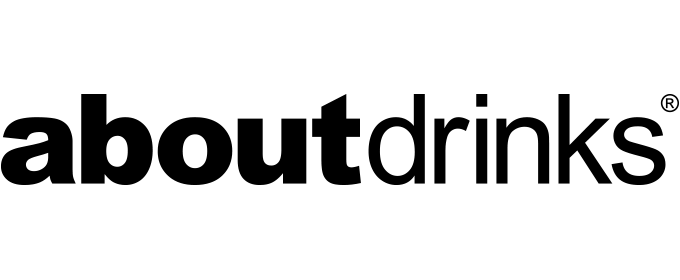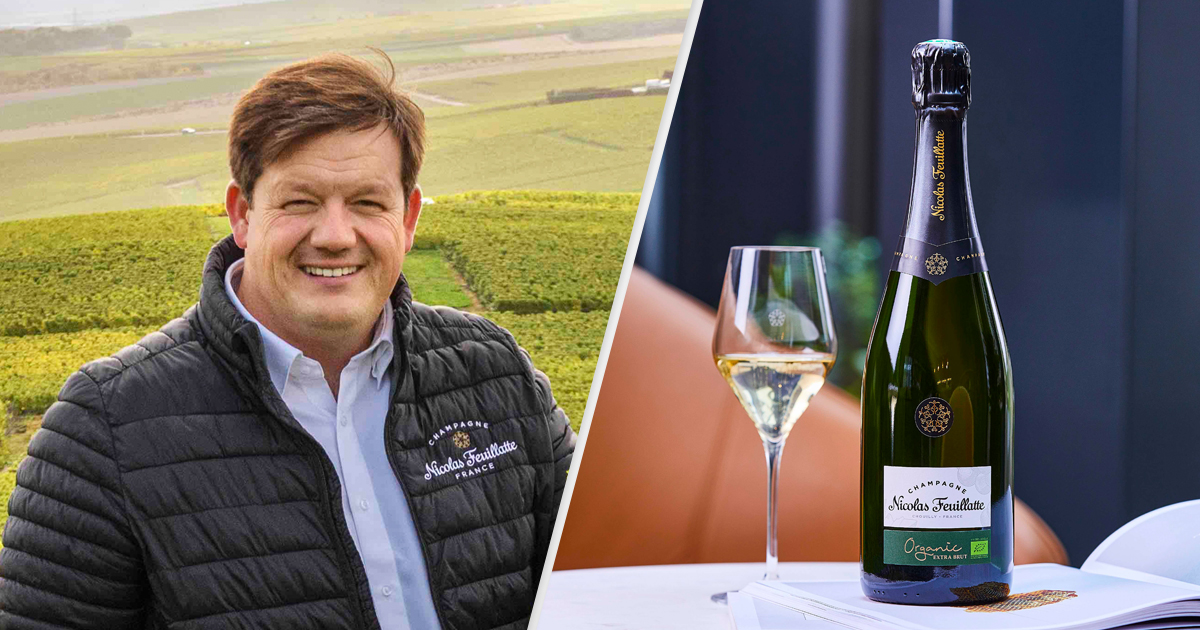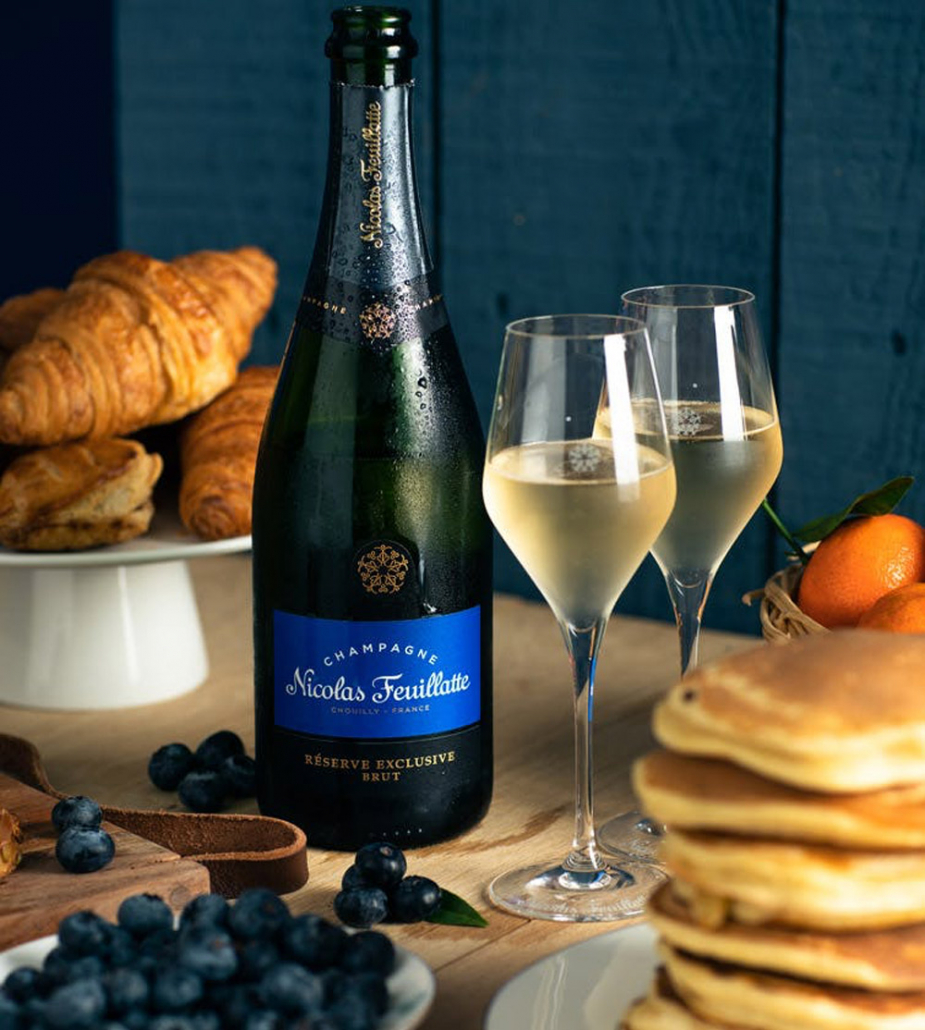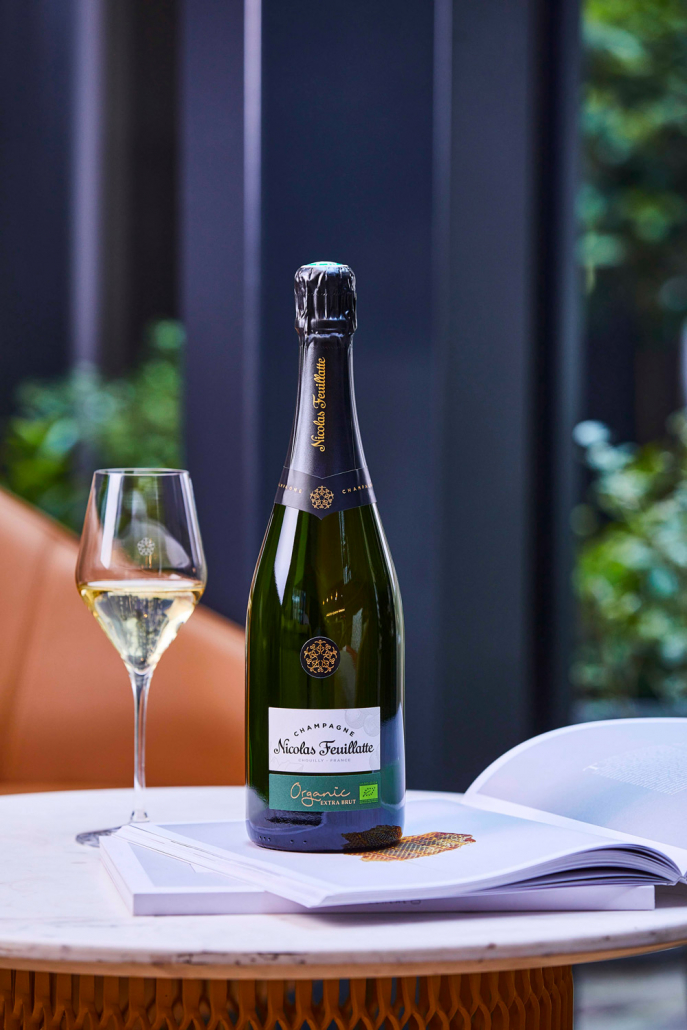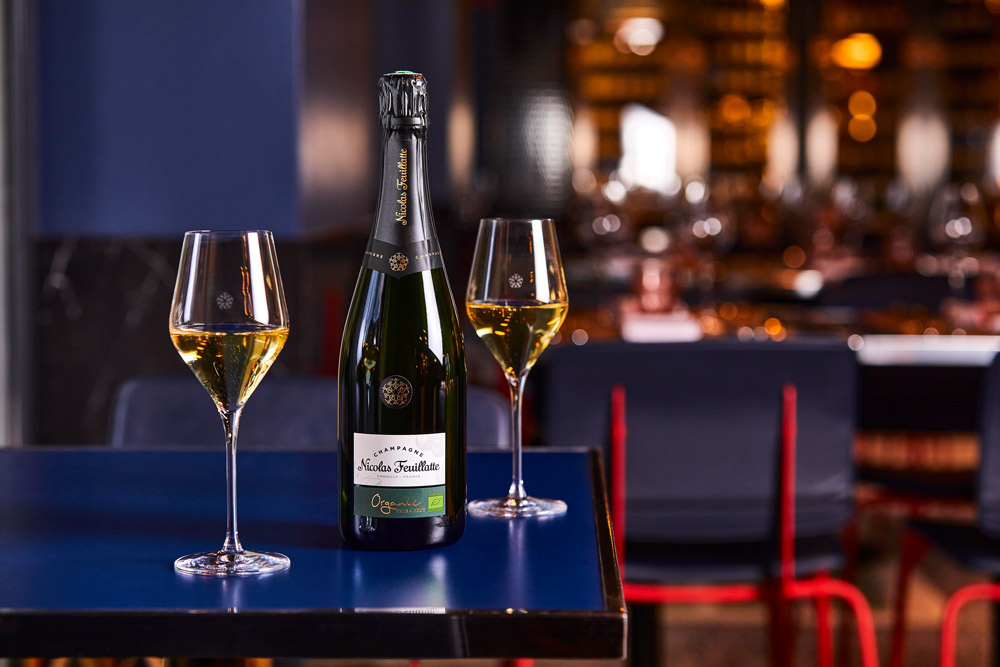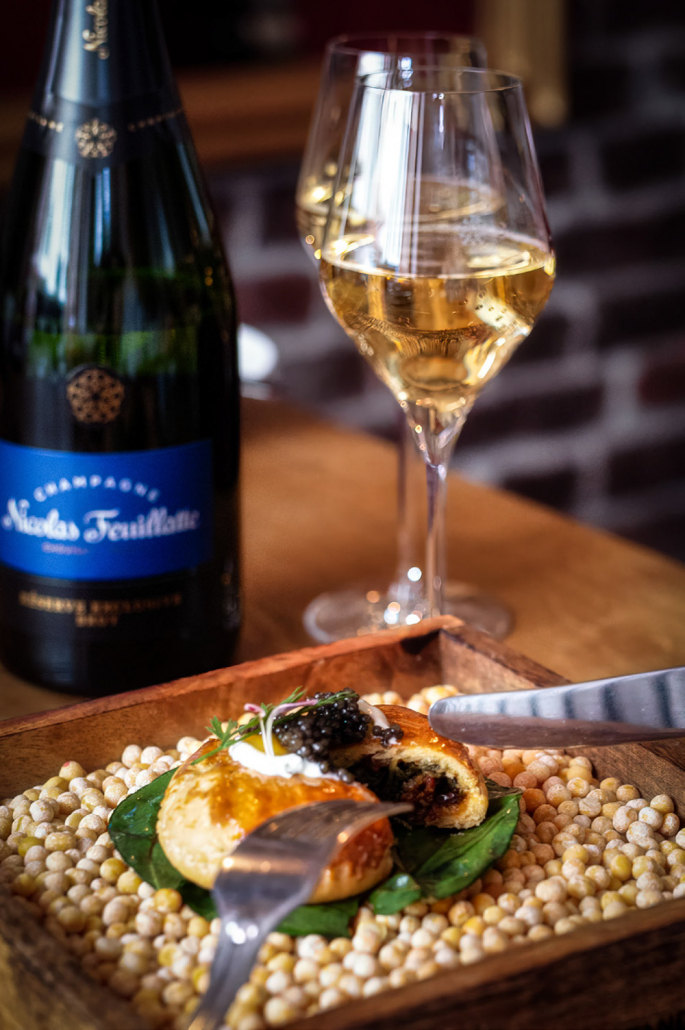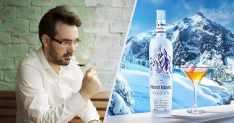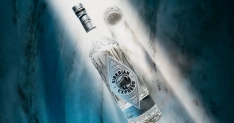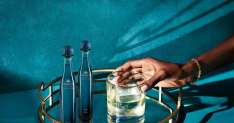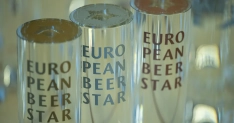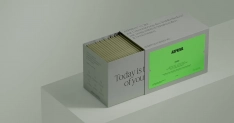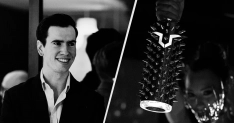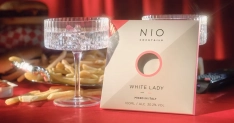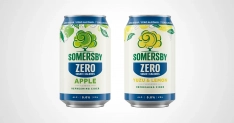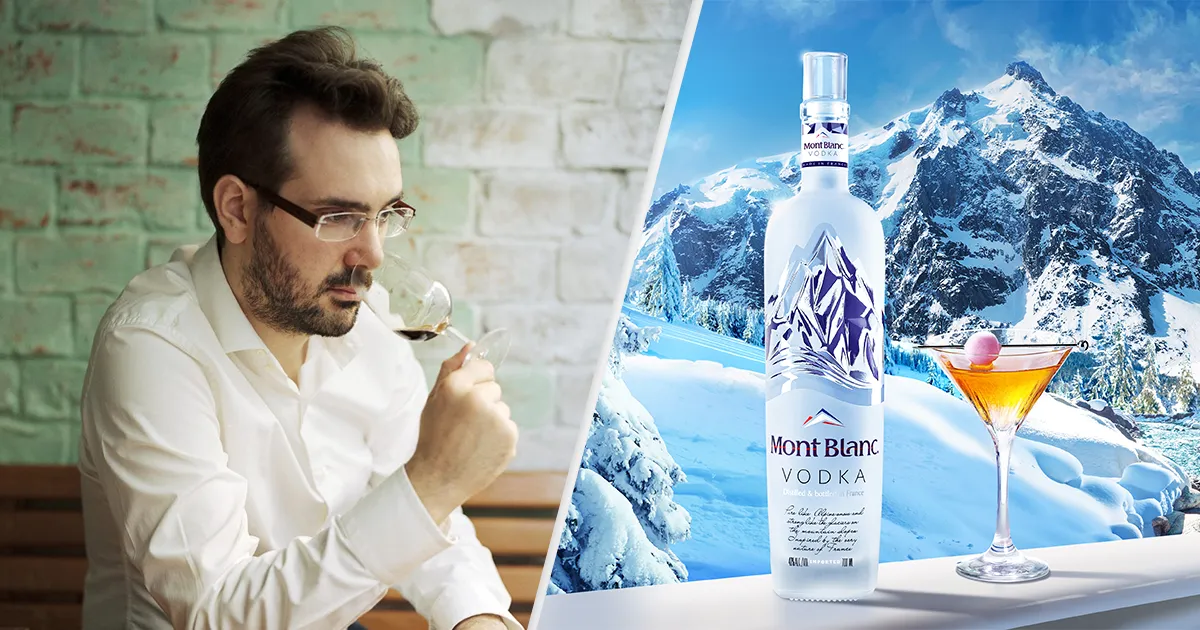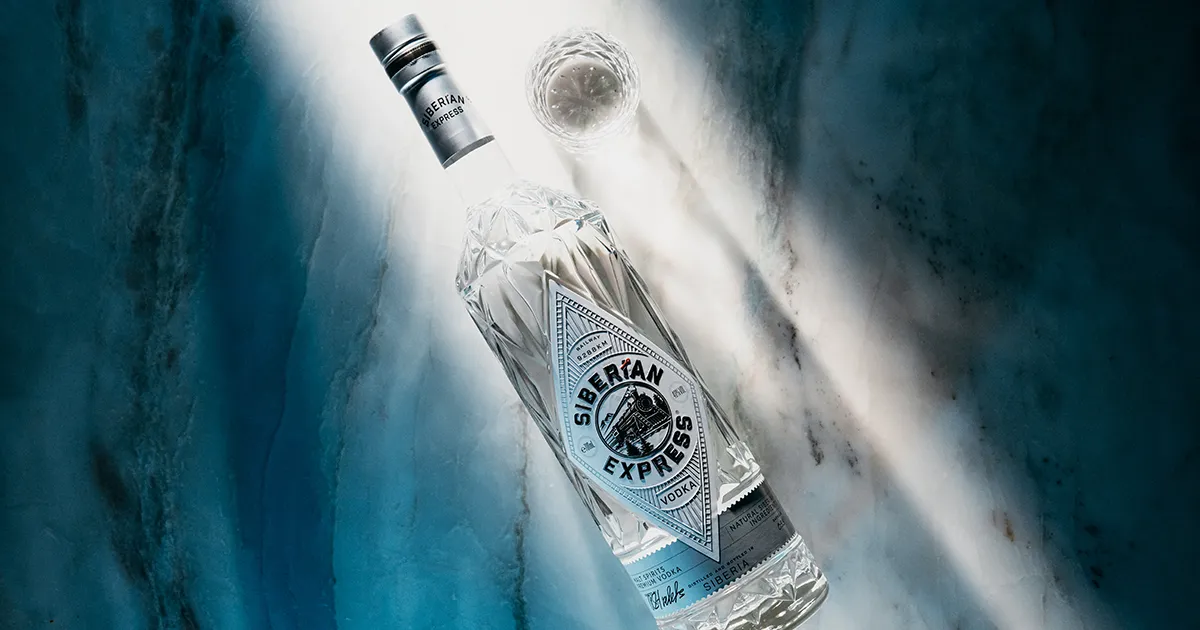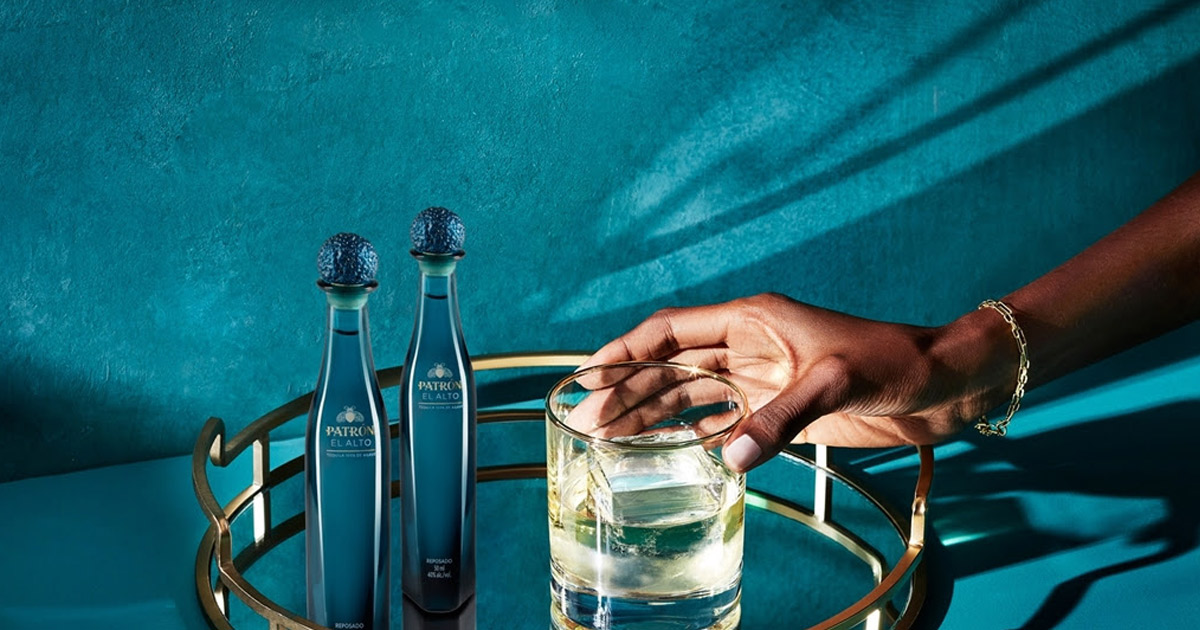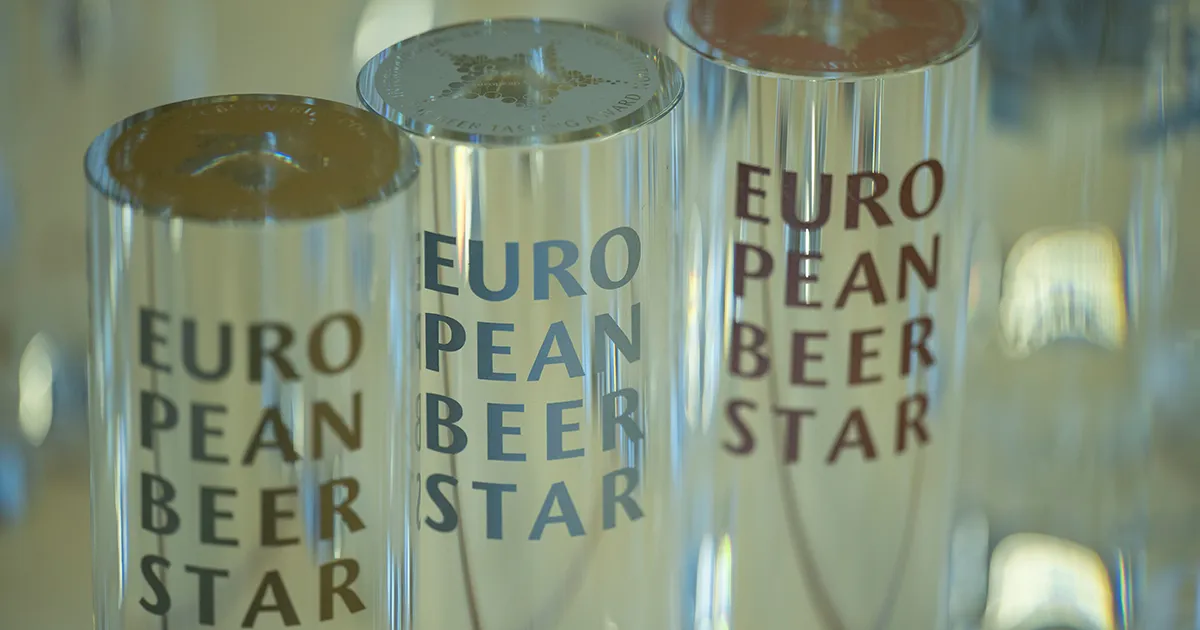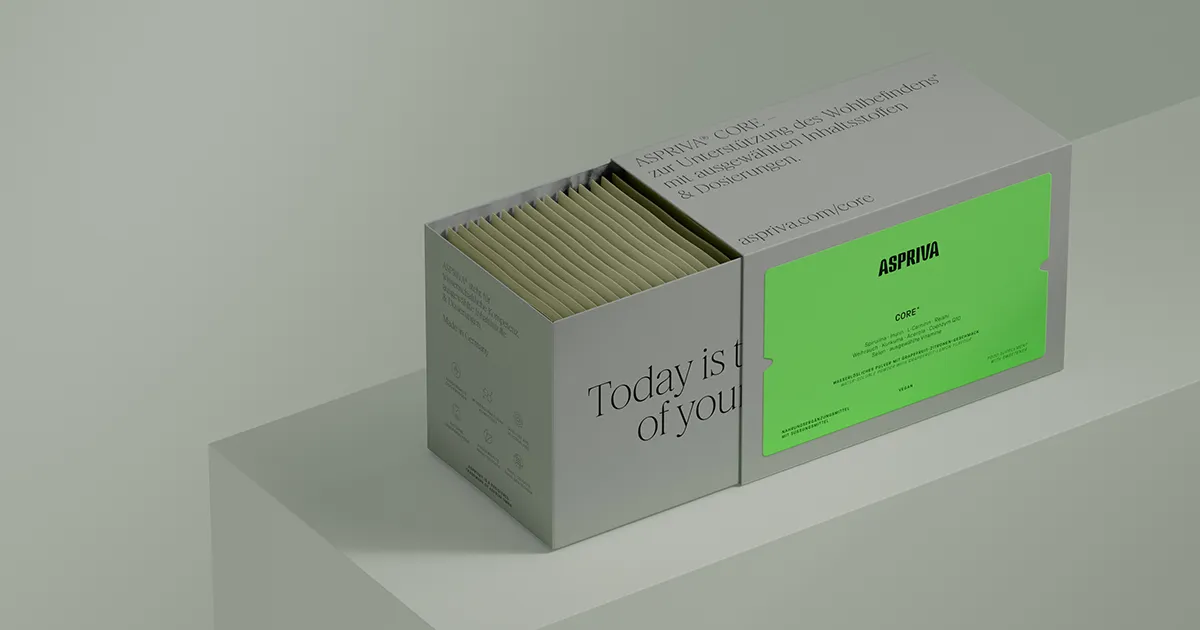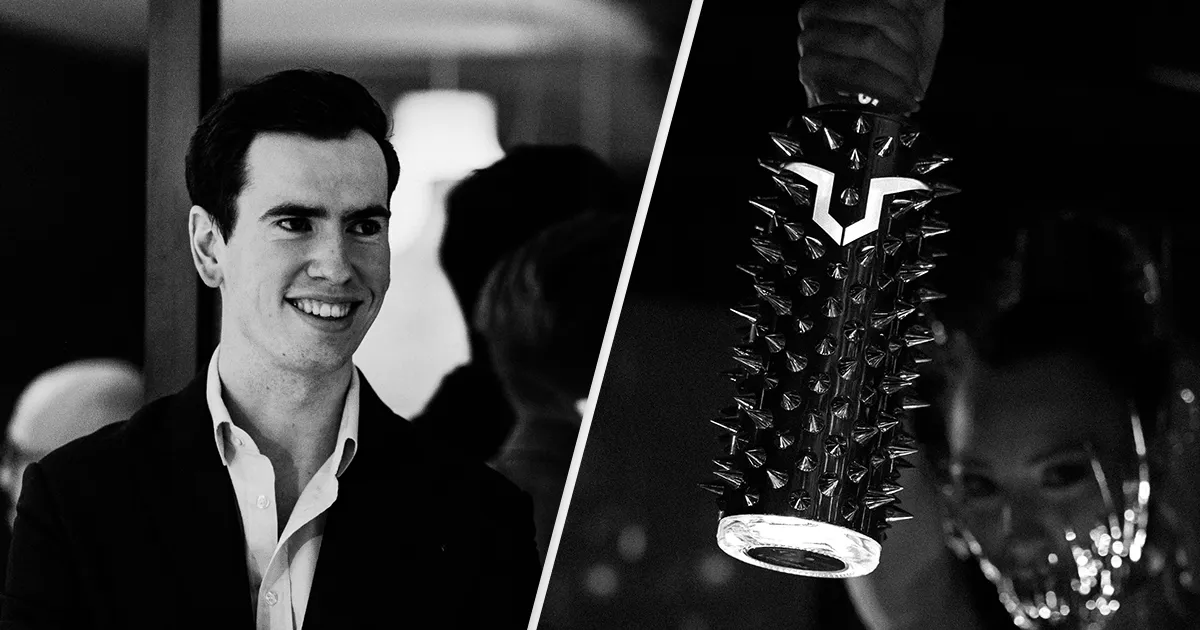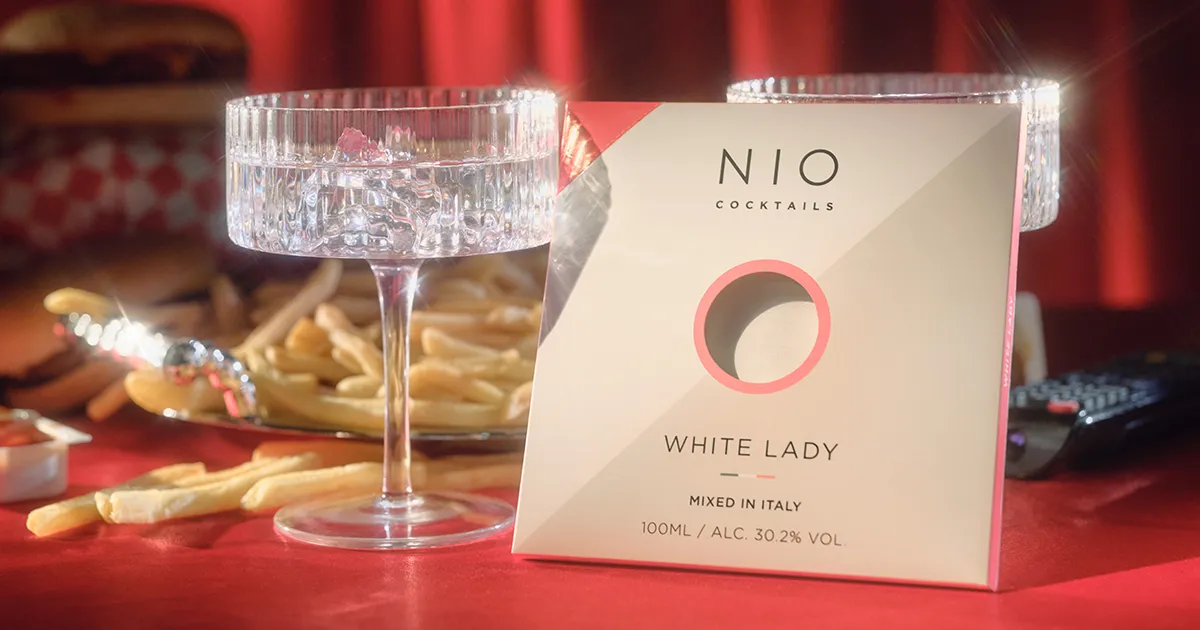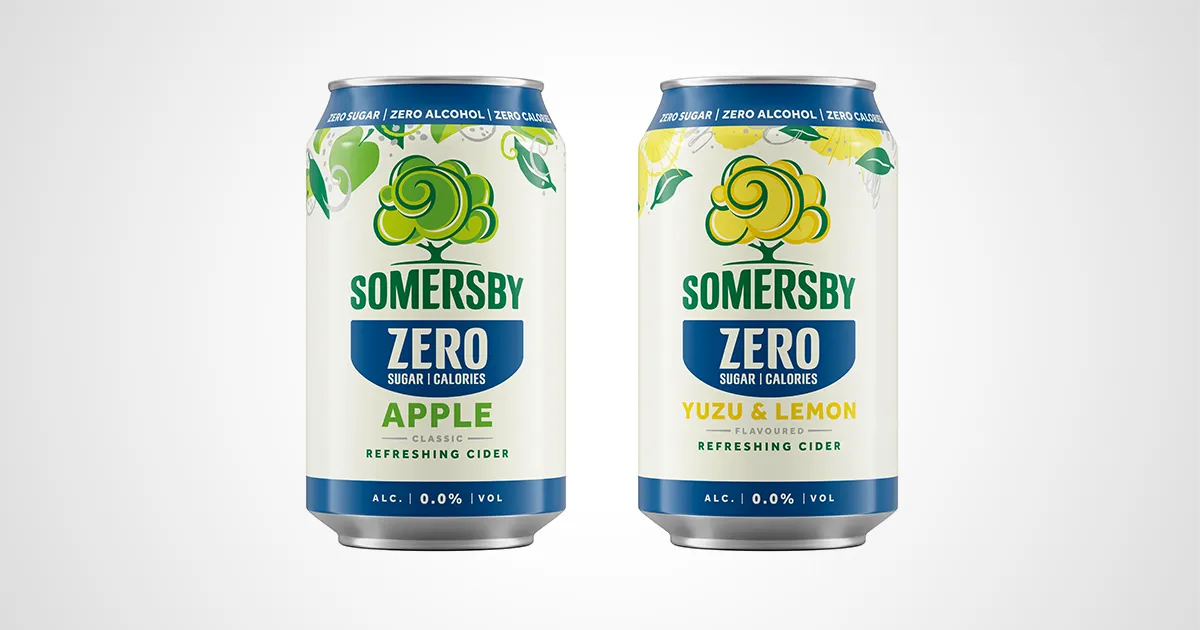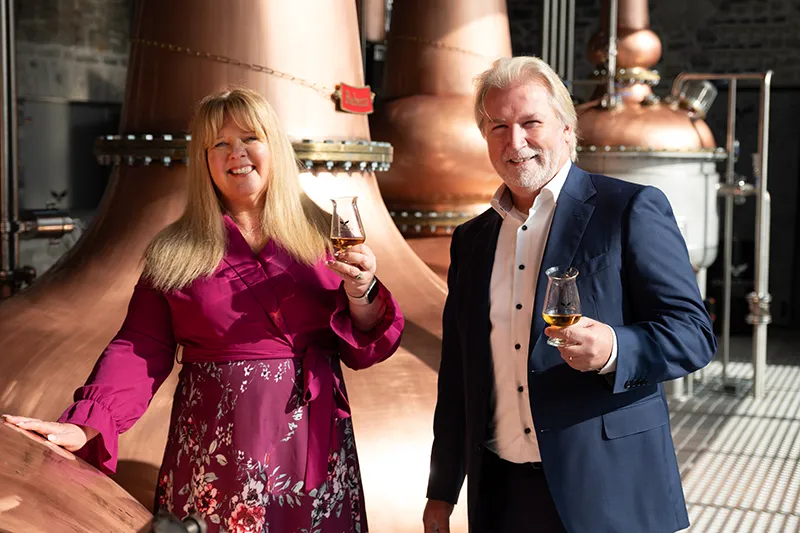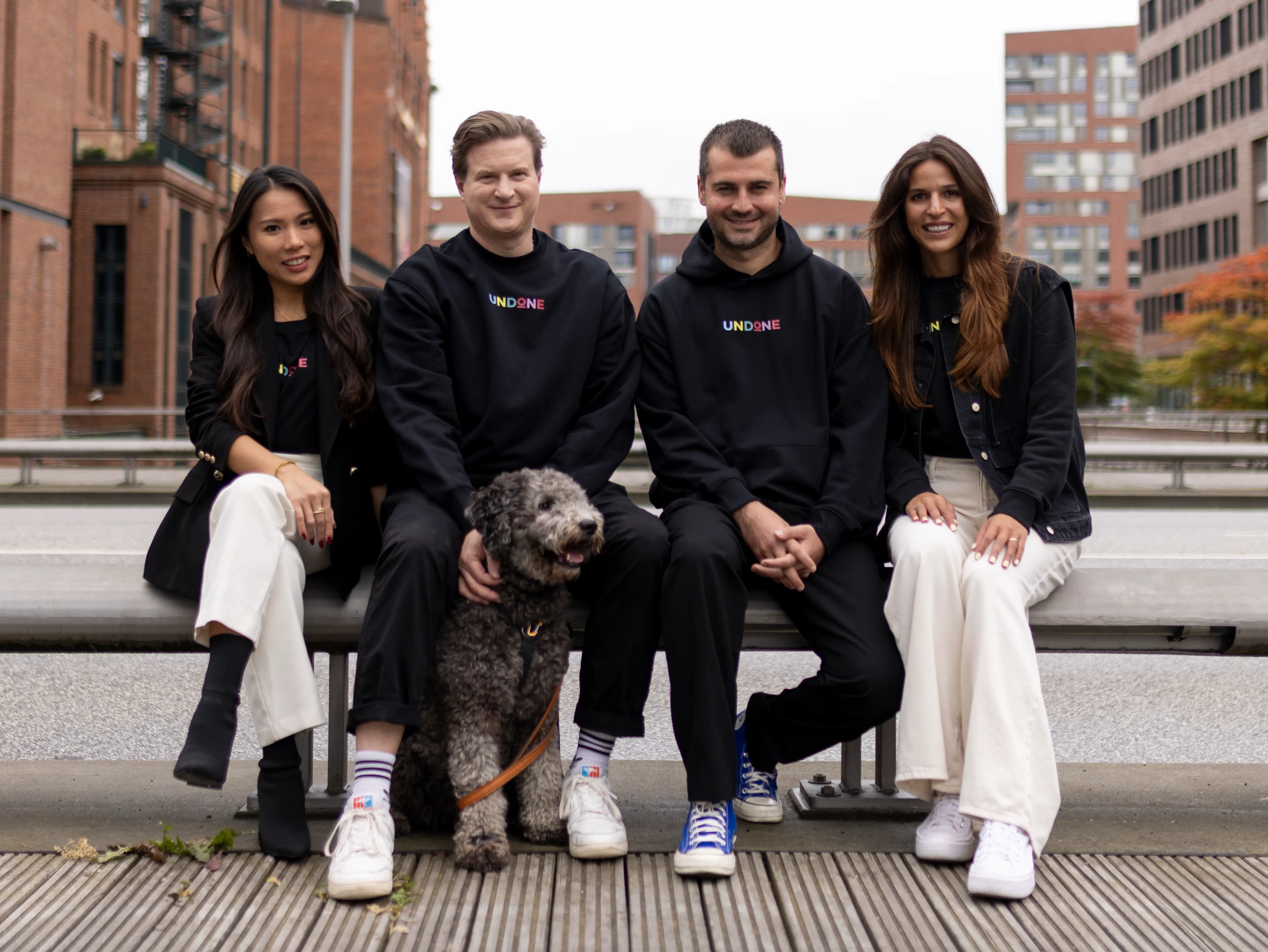Nicolas Feuillatte: Chief Winemaker Guillaume Roffiaen about the best-selling champagne brand in France
Creating first-class champagne for everyone – that is the mission of Champagne Nicolas Feuillatte. Today, the association stands for 82 Champagne co-operatives with 5,000 Champagne winegrowers, who together cultivate around 2,100 hectares of vineyards in Champagne. Nicolas Feuillatte, the youngest of the major brands, was founded in 1976. Today, it is the best-selling champagne brand in France and is in third place in the global sales rankings. Agricultural engineer and oenologist Guillaume Roffiaen has been in charge of oenology and quality since 2014 and was appointed Chief Winemaker in 2017.
We spoke to him in this interview about the cooperative model, the Nicolas Feuillatte brand and its products, as well as the topic of organic in the champagne industry.
In which position does Nicolas Feuillatte work and what are your main tasks?
Guillaume Roffiaen: I am the Chief Winemaker of Champagne Nicolas Feuillatte. With my team, I oversee the entire Champagne making process, from vine to wine. We work tirelessly to create exceptional cuvées and a constant quest for perfection is instilled in each of the House’s champagnes.
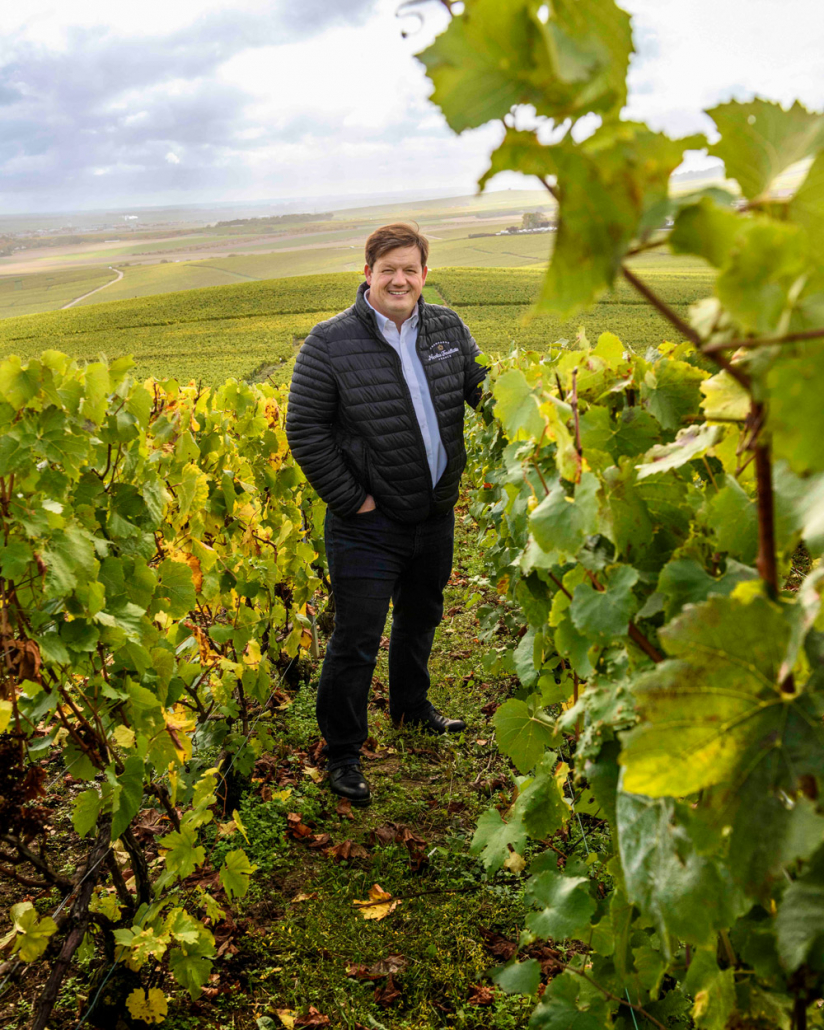
Agricultural engineer and oenologist Guillaume Roffiaen has been in charge of oenology and quality since 2014 and was appointed Chief Winemaker in 2017.
Champagne Nicolas Feuillatte is not only the best-selling Champagne brand in France today, but also a union of coops. What exactly is this association and how did it come about?
Guillaume Roffiaen: In its current form, the co-operative model is unique in Champagne. It unites the commitment and solidarity of 5,000 winegrowers. The origin of the brand is a story about people: Henri Macquart, the founder, and Nicolas Feuillatte, a bold entrepreneur who gave his name to the brand. Together with committed winemakers, they created Champagne Nicolas Feuillatte in 1976 that stands for excellence.
Who all belongs to Champagne Nicolas Feuillatte and what is the aim?
Guillaume Roffiaen: As already mentioned, 5,000 winegrowers belong to the association. In 2022, the Centre Vinicole-Champagne Nicolas Feuillatte merged with the former Coopérative Régionale des Vins de Champagne to form the Terroirs & Vignerons de Champagne Group. Together, they cover around a tenth of the entire Champagne region and represent a third of all winegrowers.
The original aim of the association was to ensure that winegrowers could sell their grapes. The idea arose from the experience of a surplus harvest in 1970 that led to major storage issues and was originally intended to prevent further problems and resulting losses of this kind.
Nicolas Feuillatte is the youngest of the major Champagne brands and was founded in 1976 by Nicolas Feuillatte and Henri Macquart. How did the brand come about?
Guillaume Roffiaen: Nicolas Feuillatte, the founder, was born into a family of merchants and created his own Champagne brand in 1976 – originally for some close American friends of his, such as the Kennedys and Onassis. In 1986, however, Nicolas Feuillatte decided to partner with Henri Macquart and the two of them founded the Centre Vinicole – Champagne Nicolas Feuillatte, the youngest of the major Champagne brands and the leading cooperative brand.
The best-selling Champagne brand in France and third in the global sales rankings – what are the milestones from its foundation to the present day?
Guillaume Roffiaen: The first milestone certainly was the year 1995, when we sold one million bottles. In 2014, we reached the mark of 10 million bottles sold in almost 80 countries all over the world. In 2016, Feuillatte celebrated its 40th anniversary and completed extensive renovations to its winemaking facilities in Chouilly, the heart of the Champagne Appellation.
In 2021, Champagne Nicolas Feuillatte announced its Unleash the Bubbles platform with the claim of ‘No Occasion Necessary’. Finally, we were delighted to triple our organic cultivation area this year.
The introduction of organic viticulture is certainly one of the secrets of your success. How long has it existed and how has it developed?
Guillaume Roffiaen: We had our first organic harvests in 2009, 15 years ago. At that time, there weren’t many growers who cultivated that way. Moreover, organic grapes did not necessarily mean organic wine. A Champagne can be labelled as organic since 2012, when the AOC guidelines were introduced.
Until 2019 around 7 or 8 hectares were cultivated organically every year. Since then, the number of organic vineyards has been growing dynamically. Today, the area under organic cultivation for Champagne Nicolas Feuillatte covers over 50 hectares. This amounts to a threefold increase compared to 2022, and is equivalent to a potential of 300,000 bottles per year.
How important is the topic of organic in the champagne industry and, in your opinion, in the beverage industry in general?
Guillaume Roffiaen: The champagne industry is now systematically transitioning to organic viticulture and the area under organic cultivation is being consistently expanded. This is an essential development, especially in the light of climate change. The methods are complex, but our success has certainly proved our efforts to be right.
In the beverage industry in general, organic products are becoming increasingly important. In my opinion, this is certainly the case because we must all face climate issues and adapt our growing processes: customers are well aware of that. But organic wines such as our Organic Extra-Brut are also extending the product range because they exist on an equal footing with conventionally grown wines.
What does this entail to produce the products?
Guillaume Roffiaen: First and foremost, it is important to support the winegrowers in organic cultivation and to assist them in their development. With our “Champagne Academy”, we can support each winegrower individually. To this end, we have a team of oenologists and other experts who conduct soil analyses, provide certification programs and workshops and are on hand to answer any questions the winegrowers may have.
The demands of the winegrowers are high and complex; therefore, we have also collectively developed a detailed procedure with which we can monitor and control the development and the health of vines and the grapes.
What products does the Nicolas Feuillatte brand portfolio include?
Guillaume Roffiaen: As one would expect, Champagne Nicolas Feuillatte offers all varieties of champagnes, from the Non-Vintage Réserve Exclusive Brut and the Grand Cru 2015 Blanc de Noirs to the new Organic Extra-Brut and our award winning prestige cuvée, Palmes d’Or 2008 Brut.
Each of these champagnes has its own unique characteristics and is equally delicious when paired with food or as an aperitif. This portfolio allows us to cater to our customer’s wishes for every occasion.
Which distribution channels are used to market the products in Germany?
Guillaume Roffiaen: The products of Champagne Nicolas Feuillatte are sold in Germany through two distribution channels. It includes two different ranges with specific cuvées, shapes, labels, blends, … We offer one exclusive portfolio for the gastronomic sector and, of course, independent specialist wine shops.
We also hold partnerships with individual restaurants that offer our products on their menu or by the glass. Through our brand ambassador program Nicolas Feuillatte & Friends, for which we team with chefs from all over the world, we can also showcase the exquisite qualities of our wines combined with food and for the apéritif.
A second different portfolio is sold only in the general retail market. Champagne Nicolas Feuillatte can be found in Germany for end consumers at HAWESKO.
If you would like to see for yourself: Is it possible to visit Nicolas Feuillatte at his place of origin while travelling in France?
Guillaume Roffiaen: Yes of course, visitors and friends are very welcome in Chouilly, and in our dedicated boutique in Paris. We have designed our award-winning tour as a tribute to the wines and the French wine-growing region. From the glazed building, you have a 360-degree view of the famous Champagne regions of Vallée de Marne, Montagne de Reims and Côte des Blancs.
You can choose from various guided tours of the cellars, and you also have the option of a new type of blind tasting. The workshop is designed as an immersive and sensory course that takes you through the various grapes used in our blends: Chardonnay, Pinot Noir and Meunier. By smelling, tasting and feeling, guests will explore the aromas and flavors of our wines.
Nicolas Feuillatte | Website | Instagram | Facebook | LinkedIn
+++ We would like to thank Guillaume Roffiaen for the open and very interesting interview! If you also have an interesting brand, then we should talk. Just send us an e-mail with the subject “about-drinks interview” to redaktion@about-drinks.com – we look forward to hearing from you! +++
